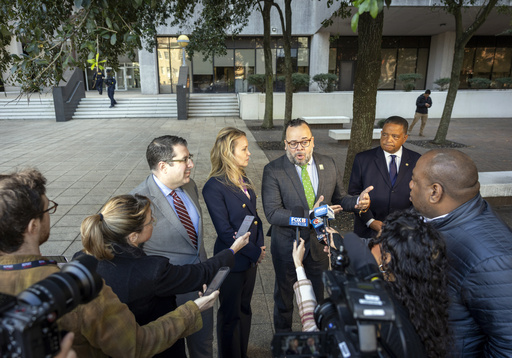
NEW ORLEANS — A federal judge has granted the New Orleans Police Department (NOPD) the opportunity to begin winding down its federal oversight, marking a significant step forward after years of reform efforts initiated following a federal investigation into police practices. This ruling was made by U.S. District Judge Susie Morgan during a hearing on Tuesday, where she acknowledged the progress the NOPD has made in becoming more accountable and transparent, although she emphasized that some work is still necessary to consolidate these reforms.
Judge Morgan approved a two-year “sustainment period” designed to allow the NOPD to address any remaining issues and ensure that the implemented reforms continue. This decision comes after a motion submitted by the city and the Justice Department last September, advocating for the conclusion of federal oversight. During the hearing, Morgan expressed her pride in the strides made by the NOPD, acknowledging the extensive efforts of both civilian and sworn members in transforming the department. She remarked that the NOPD is “a far different agency” compared to its status during the problematic period that led to a Justice Department investigation back in 2011.
The backdrop of this development stems from a 2013 agreement, where a federal oversight plan was put in place following a Justice Department inquiry that uncovered racial discrimination, misconduct, and an overarching culture of impunity within the police force. The department’s historical mistreatment of the Black community, coupled with notable scandals—including a murder ordered by a corrupt officer and the police’s attempts to cover up civilian deaths after Hurricane Katrina—led to calls for extensive reform.
Despite concerns raised by critics about the adequacy of reforms, NOPD Police Superintendent Anne Kirkpatrick maintained that a “new culture” has been established within the department. The NOPD has enhanced its operations through audits, data analysis, increased transparency in training resources, improved disciplinary measures, and greater efforts to combat issues like payroll fraud. Kirkpatrick described the judge’s ruling as “a huge milestone” and expressed the necessity of maintaining focus during the sustainment period to ensure continuous improvement.
While Kirkpatrick acknowledged the progress, the city made a last-minute legal push to immediately terminate federal oversight, which Judge Morgan rejected. Additionally, the judge also denied a request from the city to enlist the state’s Republican Attorney General to aid in this process. Attorney General Liz Murrill had criticized the ongoing federal oversight, labeling it as an overreach that undermined local control. Meanwhile, City Council President J.P. Morrell criticized the mayor and Murrill for pursuing premature termination of oversight, emphasizing that council members were not consulted and encouraged the completion of ongoing reforms.
Mayor LaToya Cantrell recognized the NOPD’s progress but argued that the original goals of the reform initiative had already been met, advocating for the immediate end of federal oversight. Nevertheless, advocacy groups have raised several concerns, many of which were highlighted during a monthslong public comment period focused on addressing the mandates from the initial reform agreement in 2013. Despite police efforts to respond to various critical issues, several reforms remain in flux; for instance, the establishment of community advisory boards has been slow to progress, although the city has appointed a staff member to spearhead these efforts.
Furthermore, the NOPD is facing challenges in resolving sex crimes, with a significant caseload affecting the overall resolution rate which is reportedly below the national average. Recently, the department added additional detectives to handle these cases, but critiques about investigative effectiveness persist. Alarmingly, statistics reveal that nearly 90% of last year’s uses of force involved Black individuals, raising ongoing concerns about racial disparities in police practices.
In response to community feedback, the NOPD plans to enlist the help of an external consulting firm to bolster its analytical capabilities in addressing these issues. Community activists emphasized the need for continued engagement and vigilance in addressing police reform, expressing concerns that substantial work remains to be done.
Activists like Marvin Arnold have actively highlighted potential conflicts of interest among federal monitors, while others like Belden “Noonie Man” Batiste protested the move to end federal oversight. Still, Batiste acknowledged the value of the judge’s engagement with community concerns and expressed relief at securing an additional two years of oversight, especially amidst uncertainties regarding future federal policies under a new administration.
While this ruling presents a pivotal moment for the NOPD, it is clear that the road ahead involves ongoing efforts to deal with entrenched issues and the need for sustained community involvement in the reform process.

